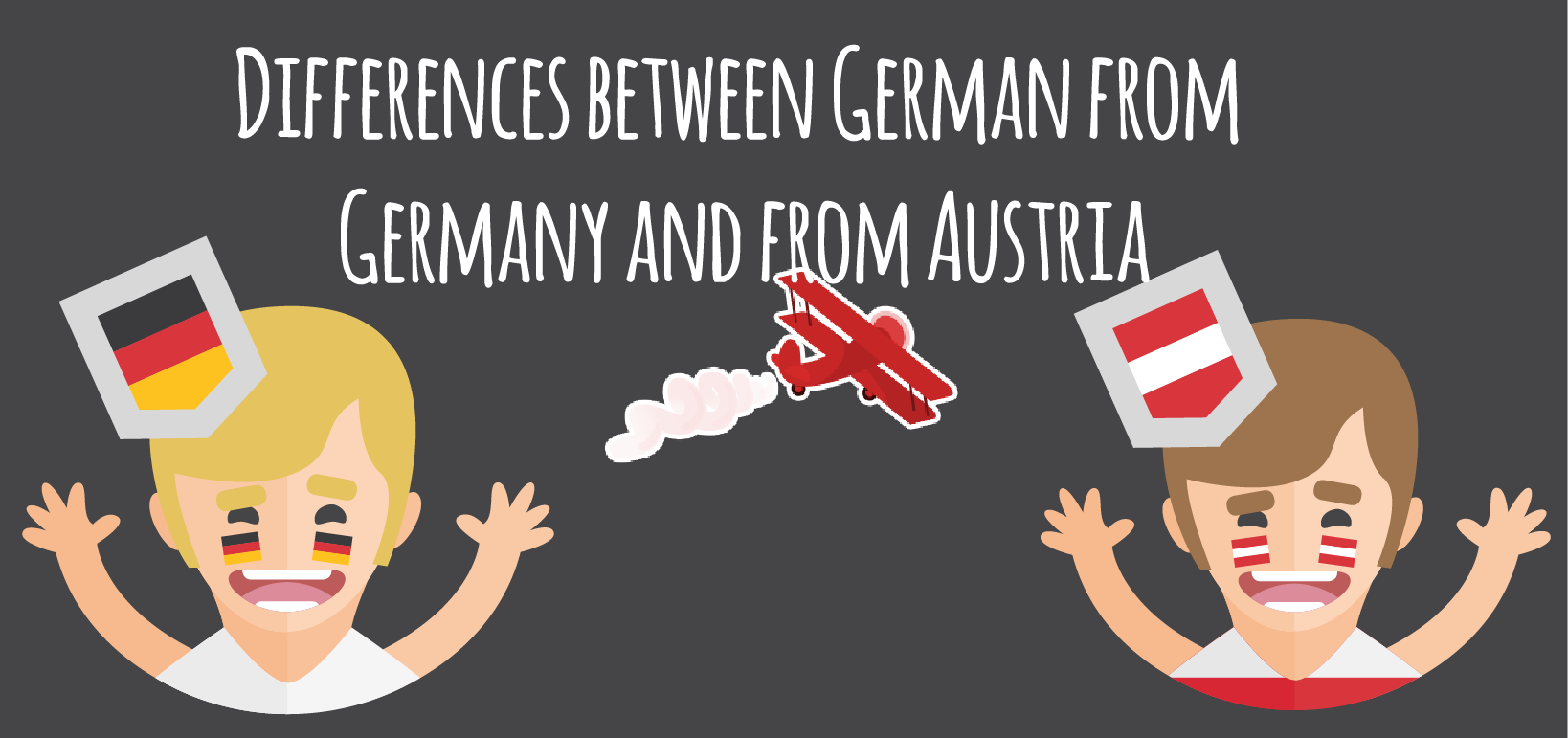Differences between German from Germany and from Austria

Differences between German from Germany and from Austria
INDEX OF CONTENTS
- the difficulties of learning German
- German from Germany
- Austrian German
- The grammar of Austrian German
- Austrian German vocabulary
- Differences in the development of language history
With learning German you have made a very good decision when choosing the most widely spoken native language in Europe : it is used by almost 100 million European inhabitants. There are more than 80 million native speakers in Germany, 8 million in Austria, and 5.5 million in Switzerland. Furthermore, almost half a million people speak German in Luxembourg, 60,000 in Belgium and 40,000 in Liechtenstein. Standard German, also known as “High German” (Hochdeutsch), is normally taught in schools and therefore also in German classes . This German is the one that is certified and studied in Spain, if you want to know more about the nearest calls, take a look at examenexam .
The difficulties of learning German
Despite your decision and without implying an insurmountable obstacle, we cannot ignore that one of the most important difficulties when learning this language is the existence of some 50 dialects that can pose a significant challenge for students of German, especially in spoken language.
For this reason, people who learn German often ask whether with standard German they can really function in any German-speaking country. That is why in this article we discuss the peculiarities of Austrian German.
German from Germany
When speaking of the German language it can sometimes be tempting to think of this language only in relation to Germany, which is by far the largest German-speaking country in the world. But it is important to remember that, as with any language, there are different variations and dialects that you should know.
It is estimated that around 105 million people around the world speak German as their native language, while 80 million more use it as a second language. Around 8 million native speakers live in Austria, but German is also an official language in Switzerland and is spoken by many.
Although German speakers in both countries have no problem understanding anyone who speaks Standard German to a reasonable degree, it is important to note that the German spoken in Austria and Switzerland differs in many ways. At this point, let’s take a closer look at some of the key vocabulary differences.
Austrian German
Standard Austrian German is one of the varieties of Standard German that comes from Austro-Bavarian and whose characteristics do not differ too much from Standard German . It can be said that the differences between the two versions of German are in part similar to the division between Spanish in Spain and Spanish in Latin America. Austrian German has its peculiarities in terms of accent, vocabulary, and some aspects of grammar . However, the existence of these differences does not prevent fluid communication between the Germans and the Austrians. So if you are studying Hochdeutsch you will have no problem adapting quickly to Austrian German.
Austrian German dates back to the 18th century and is a source of pride for the people who live in the country. Many of them use Austrian phrases and expressions instead of their standard German equivalents. We’ve listed some Austrian German words and expressions below, along with their Standard German counterparts and an English translation.
The grammar of Austrian German
As for grammar, in Austria, as well as in German Switzerland and southern Germany, some verbs , although they do not express movement or change of state, form the past tense Perfekt with the auxiliary verb “sein”, unlike the rest of German-speaking regions.
These verbs are : sitzen – gesessen (to sit), liegen – gelegen (to lie down) and schlafen – geschlafen (to sleep). The perfect of these verbs in Austria is:
- Ich bin gesessen. (I sat down)
- Ich bin gelegen. (I went to bed)
- Ich bin geschlafen. (I fell asleep)
Furthermore, the past tense (past simple) is rarely used in Austria , especially in the spoken language.
In terms of vocabulary, below we can see some differences between Standard German and Austrian German:
Austrian German | German from Germany | English |
| Der Erdapfel | Die kartoffel | potato |
| Der feber | Der februar | February |
| heuer | Dieses Jahr | This year |
| der Jänner | der Januar | January |
| die Kanzlei | das Büro | office |
| der Kasten | der Schrank | wardrobe |
| die Matura | das Abitur | high school |
| die Stiege | die Treppe | stairs |
Vocabulario alemán austriaco
- Alemán austríaco: Erdapfel
- Alto alemán: Potato
- English: Potato
- Alemán austríaco: Sackerl
- Alto alemán: Tüte
- English: Bag
- Austrian German: Rauchfang
- High German: Schornstein
- Spanish: Fireplace
- Austrian German: Stiege
- Standard German: Treppe
- English: Stairs
While German-speaking Austrians understand all of the above words , it should also be noted that many of the standard German expressions are also used. An example: the word ‘Erdapfel’ is recognized as an Austrian variant of ‘potato’, but more than half of the Austrian population uses the standard German term.
Differences in the development of language history
Finally, it should be remembered that the Austrian standard language was not compatible with all the developments of the German standard language . For this reason, in Austria there are still expressions that have already been lost in standard German.
A popular example is the Austrian term January for January. Dialect speakers from southern Germany often use this expression as well. In an official letter, a South German dialect speaker will not yet use the expression because it no longer belongs to the standard West German language.


